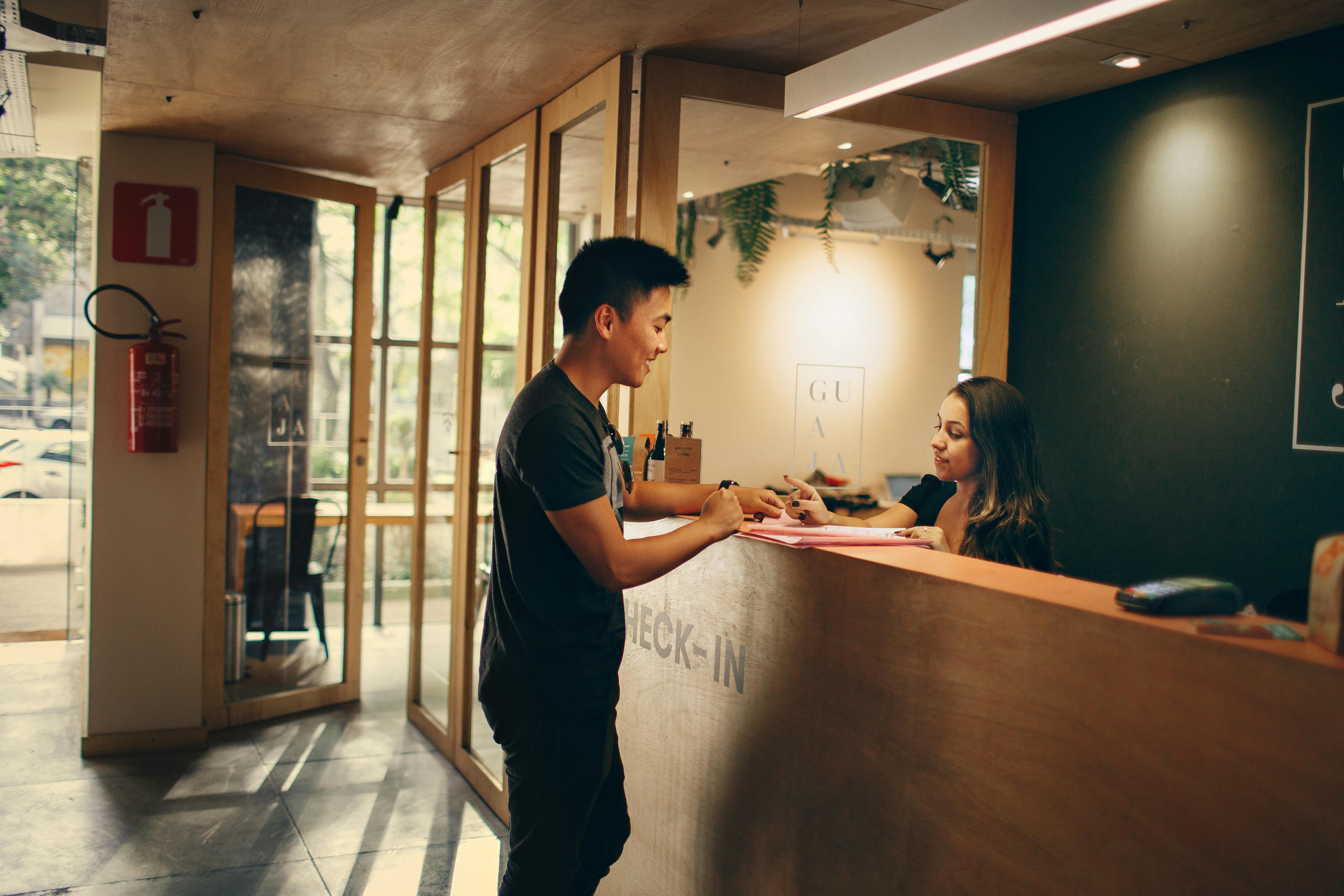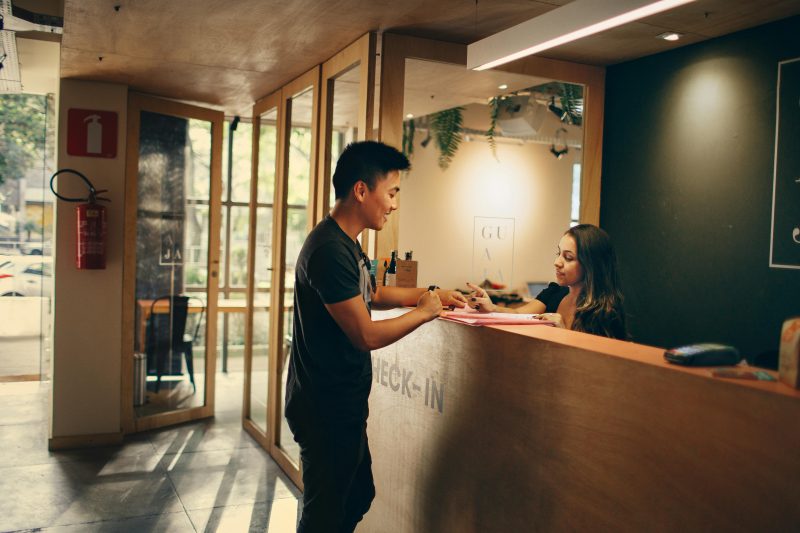10 Things to Know About the Travel and Hospitality Industry Before Starting Your Career
Breaking into the Travel and Hospitality industry can be both exhilarating and daunting. With insights from industry leaders like CEOs and Marketing Directors, this article offers a well-rounded perspective for new grads and jobseekers. Discover why it’s essential to explore diverse roles in hospitality right from the start and conclude with the importance of learning business fundamentals. In total, this article provides ten expert insights to guide your career transition.
- Explore Diverse Roles in Hospitality
- Master Service Under Pressure
- Emotional Labor Is Key
- Build Personal Relationships
- Focus on Customer Service
- Adaptability Is Crucial
- Network for Opportunities
- Understand Industry Realities
- Embrace Technology and AI
- Learn Business Fundamentals
Explore Diverse Roles in Hospitality
As a former hotel manager who majored in hospitality, I can enthusiastically say that the Travel and Hospitality industry has so many avenues that you can pursue—you can manage a resort, restaurant, travel agency, or a tourist attraction. You can work on a cruise ship, at a tropical resort, an amusement park or state park, or a tourism office. Just be aware that many operations are 24/7/365 and require staffing at all hours of the day and night. To get the most accurate view of the highs and lows of working in the industry, I strongly suggest working PT hospitality jobs in various areas and completing at least one summer internship to experience firsthand the various highs and lows of the hospitality industry.
Shelley Maley, Founder & CEO, Dreamcatcher Career Coaching, LLC
Master Service Under Pressure
In my experience, one of the most crucial insights for anyone entering the travel and hospitality industry is understanding the art of service under pressure. Unlike many other fields, this industry demands not just resilience, but a knack for transforming stressful, unpredictable situations into positive, memorable experiences for guests. It’s an ability that requires a blend of emotional intelligence, quick decision-making, and a natural inclination toward empathy. At BeamJobs, we advise candidates entering this field to showcase examples in their resumes and interviews where they’ve demonstrated these skills, especially in situations that required both composure and creativity.
For me, this approach is what sets standout candidates apart in travel and hospitality—showing they’re ready not only to handle pressure but to turn it into an opportunity to deliver exceptional service. When you can bring out this unique skill set, you’re showing potential employers that you’re not just prepared for the job—you’re prepared to make a real impact.
Stephen Greet, CEO & co-founder, BeamJobs
Emotional Labor Is Key
One thing new grads looking to change careers should know about the travel and hospitality industry is the importance of emotional labor in delivering exceptional guest experiences.
You need to be able to manage your emotions and present a positive, composed demeanor, even in challenging or stressful situations. This skill is essential for roles in this industry, particularly those that are guest-facing, such as hotel staff, flight attendants, or tour operators, but it is rarely discussed in job descriptions.
Furthermore, emotional labor is significant because it impacts customer satisfaction and loyalty. For example, industry professionals are frequently required to handle complaints, resolve conflicts, or assist guests in dealing with travel disruptions, yet they are expected to maintain a friendly and empathetic approach. This ability to stay calm under pressure and create a welcoming atmosphere is not just a personal trait but a learned skill that can define success in this field.
In a nutshell, as a new graduate or career changer, recognizing the importance of emotional labor and developing the resilience to manage it effectively will give you an advantage when stepping into this industry.
Peter Bryla, Senior Community Manager, Resume-Now
Build Personal Relationships
One key thing a new grad or job seeker should know about the Travel and Hospitality industry is that it’s deeply rooted in personal relationships and emotional intelligence. It’s not just about the logistics of booking flights or managing hotel reservations—it’s about understanding the needs and desires of clients and creating experiences that resonate on a personal level. The industry thrives on exceptional customer service, and those who succeed are often the ones who can anticipate client needs, think on their feet, and adapt to changing circumstances with a positive, can-do attitude. So, beyond any technical skills or qualifications, demonstrating strong interpersonal skills, a passion for travel, and a willingness to go above and beyond for clients will set you apart when applying for roles in this space.
Angela Adto Tepper, Founder, AZA Luxury Travel
Focus on Customer Service
A key aspect of the Travel and Hospitality industry is its focus on customer service and flexibility. This field often involves working in fast-paced environments where things can change quickly. Whether you’re dealing directly with customers or handling behind-the-scenes tasks, being adaptable and dedicated to providing a positive experience is important.
For those entering the industry or changing careers, it’s good to be aware that many roles may require working during evenings, weekends, or holidays. Strong communication skills and the ability to work well with others are essential, as collaboration plays a big part in day-to-day operations. Being open to learning and adjusting to new systems and tools will also be helpful as the industry continues to evolve.
Klaus Niederacher, Managing Director, Seekda
Adaptability Is Crucial
Would you call yourself adaptable? Adaptability is a survival skill in travel and hospitality—an essential trait for anyone entering this dynamic field.
This industry operates under ever-changing conditions, and the ability to adjust and find solutions in challenging situations is indispensable. From flight delays and overbooked hotels to weather disruptions, unpredictable scenarios are always lurking just around the corner. Can you handle seemingly simple last-minute customer requests that may vary—from culturally specific preferences to demands that might seem unnecessary or excessive to you? Think about whether you’ll be able to adapt to periods of intense work, such as 24/7 shifts during peak seasons, as well as quieter off-peak travel periods.
In Travel and Hospitality, adaptability means responding calmly, having ready solutions at your fingertips, and creating exactly what your customers need—even when it seems impossible. Once you enter this field, you adjust to your customers, not the other way around.
Nina Paczka, Career Expert & Community Manager, MyPerfectResume
Network for Opportunities
You should know it’s a deeply interconnected field where your ability to network can make a significant difference. Building relationships with people inside and outside your immediate work area can open up opportunities that you might not find in more insulated types of jobs. This industry values those who can think on their feet and handle the unexpected with grace. Whether it’s dealing with a last-minute booking change or a weather-induced delay, showing that you can maintain your cool and keep customers happy is crucial. It’s an exciting field, but it demands resilience and adaptability—qualities that are invaluable in any career but especially here in the bustling world of travel and hospitality.
Rhett Crites, Founder, Theme Park Brochures
Understand Industry Realities
This is a big change for those coming from more traditional roles. New hires must work during the industry’s peak, busy times. That’s when demand for their services is highest. Exceptional customer service skills are critical. Most jobs require interacting with and catering to guests. Strong communication, problem-solving, and quick thinking are essential. The industry is very competitive, especially for jobs with growth potential. Experience from internships, jobs, or volunteer work can give applicants a big edge. Success in this fast-paced sector requires flexibility and non-traditional hours. New grads and career changers can benefit from understanding these unique industry realities. It can help them assess if a travel and hospitality career path is right for them.
Justin Crabbe, CEO Jettly Inc
Embrace Technology and AI
In the Travel and Hospitality industry, one trend stands out more than most: technology and AI, whether we like it or not, is changing the future while giving more time for the human touch which is the lifeline of hospitality. Before applying, I think new grads should know:
- Embrace Integrating Technology: The industry is heavily investing in technologies like contactless services, mobile apps, AI-driven personalization, and even automation to upgrade guest experiences and simplify operations. It is becoming even more important to familiarize yourself with these tools and understand how they can boost customer satisfaction.
- Personalization for Success: Modern customers expect customized experiences at pretty much every stage of their trip, from pre-booking to review requests after check-out. Jobs in the travel and hospitality sectors often use automated data analytics to anticipate individual preferences and proactively meet their needs.
- Adapt to the Current Market: Labor shortages have revved up the adoption of AI automation and streamlining tools. They allow staff to focus on high-value, guest-facing interactions instead of data collection. Jobseekers who show adaptability and a willingness to learn new technologies to deliver exceptional service will stand out in 2025.
- Focus on Sustainability and Customization: Sustainability endeavors and, again, customizable offerings are gaining the main focus of 2025. New grads and job seekers will stand-out from the intense industry competition by showing they can adapt to new resourceful technologies while keeping top-tier customer-centered service.
Nicolas Palumbo, Marketing Director, Diversity Employment
Learn Business Fundamentals
New grads and early-career jobseekers need to understand that the travel and hospitality industry is a business and requires not only building industry expertise but also functional knowledge—founded on traditional finance, accounting, operations, business administration, human resources, and more. These areas of expertise have specific demands that are measured in terms of dollars and time, so tuning into the key performance indicators (KPIs) that matter will help you align your work to your future management teams’ demands.
In other words, think of your job search this way: find the intersection of the areas of hospitality and travel that speak to your areas of interest and your functional expertise. The more you can demonstrate that you understand how these domains connect in your resume, your cover letter, your LinkedIn profile, and, ultimately, your interview, the more likely your audience will understand your value and potential contribution in a high-stakes industry.
Amy L. Adler, President, Five Strengths Career Transition Experts





